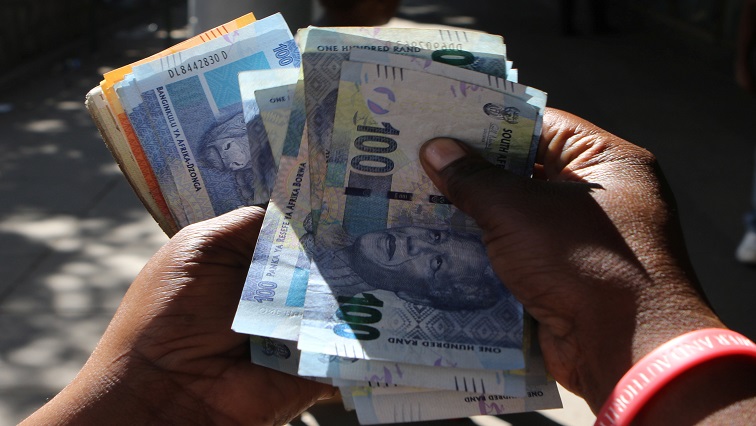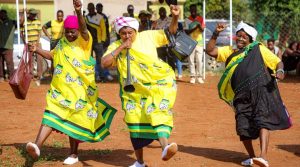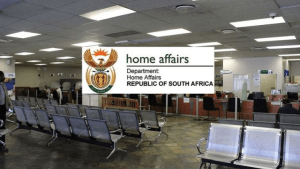Magaxa opened the debate on “building a mixed South African economy’ during a mini-plenary session this afternoon.
The theme of the debate is ” building a state-led South African mixed economy, with the participation of both public and private sectors, to contribute towards a new trajectory of inclusive growth and to address the Apartheid legacy of exclusion”.
Political parties had mixed views on the mixed economy.
Magaxa says when compared to other mixed economies in the developing world, South Africa’s mixed economy does not live up to the economic potential attributed to mixed economies.
“To put a mixed economy’s success into perspective, consider the case of Sweden. It boost strong property rights and its also open to international trade and foreign direct investment, yet Sweden has a strong aggressive social insurance and robust distribution based on public expenditure on Public Social welfare programme such as old age pensions, family allowances, health insurance and House in subsidies.”
When he participated in the debate, DA MP Jan De Villiers touched on cadre deployment against failed state-owned entities.
“ANC cadre deployment is the root cause of every single failure of government to even attempt to creating a more inclusive society. The failure of Eskom, SAA, PRASA, SABC, the list goes on and on. What does all these failed state institutions have in common? ANC cadre deployment and corruption, because the only way the ANC fat cats can enrich themselves is through the mechanisms of cadre deployment.”
But Co-operative Governance and Traditional Affairs Deputy Minister Thembisile Nkadimeng hit back at De Villiers over cadre deployment.
“Listening to us telling us about cadre deployement in the Democratic Alliance, let me refresh their memory, Marietta Steenkap, 16 May 2018, City of Tshwane, not qulaified. Wow, was that enough? 2019 Pravin Govender falsified his certification of a fire official in 2019. De Villiers, a body builder in the City of Ekhuruleni, fired previously from the City of Tshwane, but is currently employed,” says Nkadimeng.
text: EFF MP Yoliswa Yako says the ANC cannot speak about a state-led mixed economy when every part of the economy is controlled by the private sector, under its watch.
“What is more troubling is that at a time when the ANC together with its alliances, COSATU and the SACP is going full steam ahead with privatisation and liquidisation of a strategic owned enterprises. The former Western Cape Secretary of the SACP still thinks that there could be a state led mixed economy when the private sector controls all strategic sectors of the economy, including energy generation, transport, ports, telecommunications, finance and mineral resources,” says Yako.
IFP MP Elphas Buthelezi, says the ANC has not been interested in building an inclusive economy.
Buthelezi says the governing party’s actions over its years in power has demonstrated how it failed to build the economy.
“South Africa currently ranks 82 in doing business ranking in comparison with our business counterparts. As the IFP we have always believed that strong partnership between government and the private sector is what we need to build a strong economy. And overall, a prosperous country.”
Freedom Front Plus MP Frederik Mulder says South Africa needs an economy that is more inclusive and stable.
“For the economy to function at its best, it needs to be growing , sustainable, and stable. But there is more to it. It’s not simply that the economy should be merely growing, but it’s growing for all people. It is not just creating stability for some people but creating stability so that every person is free from worry about financial roadblocks and unforeseen issues. “
The ACDP Chief Whip, Steve Swart, says a capable state is also key to ensuring a thriving economy.
“Alongside a capable state, the country needs a thriving public sector, a private sector that is investing in productive capacity. As private sector employment increases, more livelihoods are supported and sustained. “
Al Jama-Ah Leader, Ganief Hendricks, says South Africa consists of a first and third world economy, which defines the economic status of the country.
“Considering these, one may argue that South Africa continue to have a mixed economy despite the fact that it continues to own state-owned entities such as Sasol an Iscor, entities that unfortunately been sold off to the private sector and this has been with no tangible financial return to the public. In fact, it is the latter that supported it financially for several years with the purpose of transforming South Africa’s commercial sector into a viable independent one. This sadly honourable House chair did not happen . For the record, while Iscor has been stripped off its assets, Sasol was conveniently privatised.”
The African Independent Congress or AIC’s Steven Jafta, South Africa has to accept that it is part of the global economy.
“The South African economy exists in a globalised economic order. This means we can no longer prescribe solutions to our economic realities due to the pressures of the global world. In this regard, we have to move away from mere slogans and sound bites to radical economic policies with real transaction to improving the lives of our people.”
National Freedom Party Parliamentary Leader Ahmed Shaik-Emam says while the NFP supports a mixed economy, the cost of doing business is very expensisve, especially for small businesses…
“If we want economic growth in a mixed economy, we must create an environment. If you look at chairperson, the cost of doing business, particularly for small businesses, and the red tape that exists, makes it very very difficult for them to survive.”
Reserve Bank governor Lesetja Kganyago announces interest rate decision






